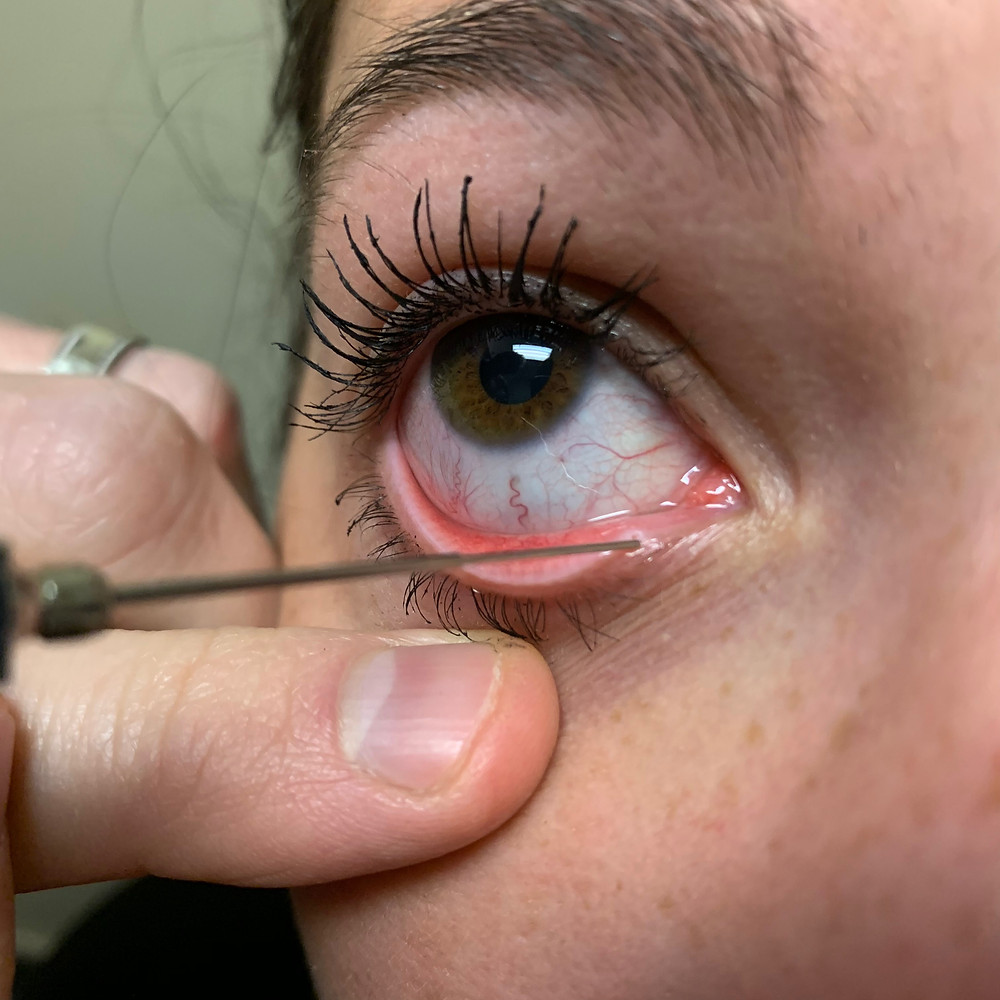Chronic inflammation is identified as a significant risk factor for dry eye disease. Conditions like ocular rosacea and meibomian gland disease (MGD) are often associated with these issues. Additionally, preservatives found in various topical medications (especially in glaucoma medication) worsens dry eye disease. In addition to MGD, the preservative toxicity leads to chronic inflammation otherwise known as toxic soup syndrome.
What is Toxic Soup Syndrome?
Toxic soup syndrome, which is induced by inadequate drainage of pooled inflammatory mediators and is underdiagnosed in the dry eye space. Gouvea et. al., focused on a diverse group of patients diagnosed with ocular surface disease associated with narrowing of the puncta.
The article emphasized the role of direct toxicity to the eye caused by preservatives in various types of eye drops, including antiglaucoma drops and steroid drops. The preservative in these eye drops disrupts the cellular architecture, induces cell death, increases the inflammatory response, and impairs cell proliferation. Finally, it demonstrated that all patients showed improvement after increasing tear function by widening the puncta either by dilation and irrigation, removal of a punctal plug or a punctoplasty. Let’s discuss how your optometrist can improve your tear function.
Improving Tear Function

A breakdown in any part of the lacrimal system can lead to a poor functioning outflow of tears. Inflammatory mediators infiltrate the ocular surface homeostasis as the “toxic soup of tears” lay stagnant on the eye. The lacrimal system is responsible for tear production and drainage. It involves the lacrimal gland (tear producer), lacrimal sac, and nasolacrimal duct (tear drainage system).
Treatment options will include dilation and irrigation for blocked punctal openings and/or removal of punctal plugs. These safe procedures aim to open the puncta and facilitate proper tear flow to reduce chronic inflammation on the ocular surface. If your tear function is severely damaged then your optometrist may refer you to a surgeon for a punctoplasty.
Assess if You Have Toxic Soup Syndrome- Ask Your Doctor
Toxic soup syndrome develops due to pooled inflammatory mediators in the eyes. This is often in the context of ocular rosacea, MGD, or the use of preserved topical medications. Dilation of the puncta is considered crucial, along with eliminating preservative toxicity and treating eye inflammation. If you are looking for an optometrist that performs dilation and irrigation, visit one of our MyDryEye clinics.








